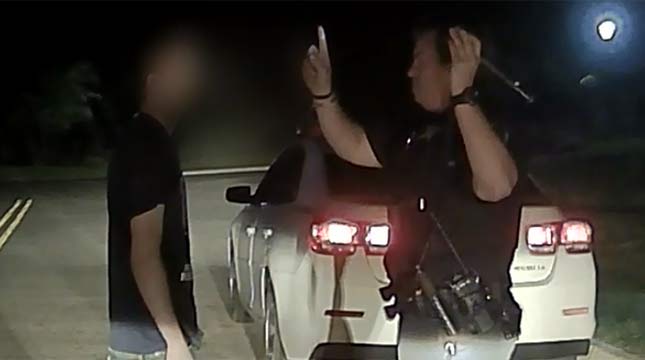-
Tips for becoming a good boxer - November 6, 2020
-
7 expert tips for making your hens night a memorable one - November 6, 2020
-
5 reasons to host your Christmas party on a cruise boat - November 6, 2020
-
What to do when you’re charged with a crime - November 6, 2020
-
Should you get one or multiple dogs? Here’s all you need to know - November 3, 2020
-
A Guide: How to Build Your Very Own Magic Mirror - February 14, 2019
-
Our Top Inspirational Baseball Stars - November 24, 2018
-
Five Tech Tools That Will Help You Turn Your Blog into a Business - November 24, 2018
-
How to Indulge on Vacation without Expanding Your Waist - November 9, 2018
-
5 Strategies for Businesses to Appeal to Today’s Increasingly Mobile-Crazed Customers - November 9, 2018
Pot-Linked Fatal Car Crashes Doubled in One State After Legalization
A study commissioned by AAA’s safety foundation concluded blood tests used to determine how much THC – the mind-altering component found in cannabis – is in a driver’s body don’t necessarily determine whether the driver is fit to be on the road, the Associated Press reports.
Advertisement
The AAA study revealed a surge in marijuana use in weekend, nighttime drivers surveyed nationally and a troubling increase in fatal vehicle crashes linked to pot in Washington state in 2014, two years after recreational marijuana was legalized there. In addition, one in six drivers in Washington involved in fatal crashes in 2014 (most recent data available) had recently used marijuana.
“We see the legalization of marijuana in Colorado and Washington as a wake-up call for all of us in highway safety”, said Jonathan Adkins, executive director of Governors Highway Safety Association, which represents state highway safety offices.
Most drivers who had THC in their systems also had alcohol or other drugs in their blood at the time of the crash, the study found. The study noted that the drivers who had THC in their blood were not necessarily impaired nor were they necessarily at fault in the crashes.
“It’s quite alarming and is something that, as drivers, we should all be aware of and not get behind the wheel after consuming marijuana”, Cook said. If someone is a regular marijuana user, the levels can be high even if they have not smoked prior to being tested. Meanwhile, the study found drivers with a blood alcohol concentration of.
The use of legal limits to determine the amount of THC in the blood is similar in the concept to the.
Established by AAA in 1947, the AAA Foundation for Traffic Safety is a 501(c)(3) not-for-profit, publicly supported charitable research and educational organization.
Unlike alcohol, it’s hard to designate a legal limit of weed for a person who’s driving, a new study reports.
Most of the time the officer has no choice but to let people continue on their way – possibly driving under the influence – instead of getting a warrant to take them to hospital.
In fact, driving with “a noisy child in the back of the car” is about as risky as using marijuana and driving, Kleiman told AP. “One person can have one limit of THC in their blood and be significantly impaired and others can have that same limit and not be impaired at all”, Mosher said.
Pot is allowed in 24 states for medicinal uses, it is legal in four states and Washington DC for recreational use.
“The significant increase in fatal crashes with marijuana present is definitely a cause for concern”, said Matt Nasworthy, Traffic Safety Consultant for AAA – The Auto Club Group. “That’s 1 in 6 drivers in Washington that were involved in a fatal collision who were under the influence of active THC (marijuana)”.
The U.S. National Institute on Drug Abuse provides more information on the effects of marijuana on driving ability. Danbury police Chief Al Baker, in a phone interview, said that because CT has tightly regulated the medical marijuana program, he believes patients are using the drug with care.
Advertisement
“Marijuana can affect driver safety by impairing vehicle control and judgement”, said Nasworthy.





























